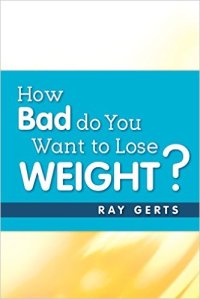Being drowsy doesn't always mean a lack of sleep.
Iron Deficiency Signs and Symptoms
/about/GettyImages-200422382-001-56a6b7523df78cf7728fd836.jpg)
Iron is necessary for producing hemoglobin and myoglobin, two proteins that carry oxygen. So, you need to get plenty of iron in your diet to have enough energy to do all the things you need to do every day.
When you don't get enough iron, you're at risk of developing iron-deficiency anemia, a condition where your red blood cells can't carry enough oxygen to all the cells in your body. People with iron deficiency anemia may have any of these symptoms:
- Fatigue
- Weakness
- Problems with memory and thinking
- Feeling cold
- Red, inflamed tongue
Iron deficiency can occur if you don't eat enough iron-containing foods, or if you have trouble absorbing iron. Most women need more iron than men due to blood loss from menstruation, and pregnant women need more iron for the developing fetus. Blood loss due to ulcers or other digestive system disorders can also lead to an iron deficiency anemia.
If you have iron deficiency symptoms, you should see a health care provider, who can order blood tests to determine if iron deficiency is the problem or if there are other causes. Don't attempt to diagnose and treat yourself.
Vegetarians and vegans may be more prone to iron deficiency because the form of iron found in plants (called non-heme iron) is not absorbed as well as heme iron found in meat, poultry and fish (heme iron). However, you can increase the amount of non-heme iron absorbed by adding a food rich in vitamin C to your meal (for example, serving black beans with green peppers or drink a glass of orange juice with a plate of spinach).
How Much Iron Do I Need To Eat Every Day?
It all depends on your sex and your age. Adult men need about 8 milligrams (mg) of iron per day, and premenopausal adult women need 18 mg per day. Women over the age of 50 only need about 8 mg per day.
Eating a healthy diet with plenty of foods high in iron is usually the best and safest way to prevent iron deficiency.
Meat, poultry, legumes, oysters, tuna, pork, nuts, dark green vegetables, tomato juice, and potatoes are all good sources of dietary iron.
What About Taking Iron As a Dietary Supplement?
Most men and postmenopausal women get enough iron from foods and should not take iron supplements unless prescribed by a health care provider. Prenatal vitamin and mineral supplements usually contain iron and women with heavy periods may need supplemental iron.
You need to be careful with iron supplements. Don't take more than 45 mg per day unless your doctor instructs you to take that much. Anything higher than that can potentially lead to iron toxicity.
Iron supplements are especially dangerous for people who have hemochromatosis, a condition where iron overload occurs. Adult iron supplements can quickly become toxic for young children, too, so iron supplements should be kept in tightly capped, childproof bottles.
Sources:
Office of Dietary Supplements, National Institutes of Health. "Dietary Supplement Factsheet
--------------------------------------------------------------------------------------------
I write about losing weight, how to lose weight, what foods to eat when you're trying to lose weight and exercise that will help you lose weight. I wrote an ebook that will give you all the info in one read. It's a how-to book that also tells you about the mistakes I made and how to avoid them.
My ebook is available at www.amazon.com, www.B&N.com, iBooks (download the app), kobo.com, scribd.com and much more. My ebook will go on sale in May for $1.99. This special will only last for a limited time.



/about/GettyImages-556451905-56aa06853df78cf772ac1171.jpg)


